Better Call Saul season 4: Vince Gilligan and Peter Gould on the 'magic trick' behind writing Breaking Bad and BCS
As season four of the prequel show looms, the pair have now been sculpting the Breaking Bad universe for over 10 years
As the final seasons of Breaking Bad were broadcast, the praise for the show’s foreshadowing was so voluminous that it became a bit of an in-joke among fans, the detailed, tapestry-like nature of the narratives being lauded endlessly. “Vince has done it again!” fans would cry, but the show’s creator in question, Vince Gilligan, who is one of the nicest and most humble men in television, would be the first to admit that most of the time it wasn’t all a case of some pre-ordained master plan.
In fact, most instances of foreshadowing might better be described as “back-mining”.
Take Madrigal, for instance, the parent company of the fictional fast food chain Los Pollos Hermanos that became a huge part of the final season of Breaking Bad‘s plot, and will pop up in the new season of Better Call Saul, which arrives on 7 August.
“I believe it was in season three [of Breaking Bad] that we had a television commercial for Los Pollos Hermanos, and if you look very closely in tiny little letters at the bottom there is a reference to Madrigal Electromotive GMBH,” Gilligan told me back in 2013.
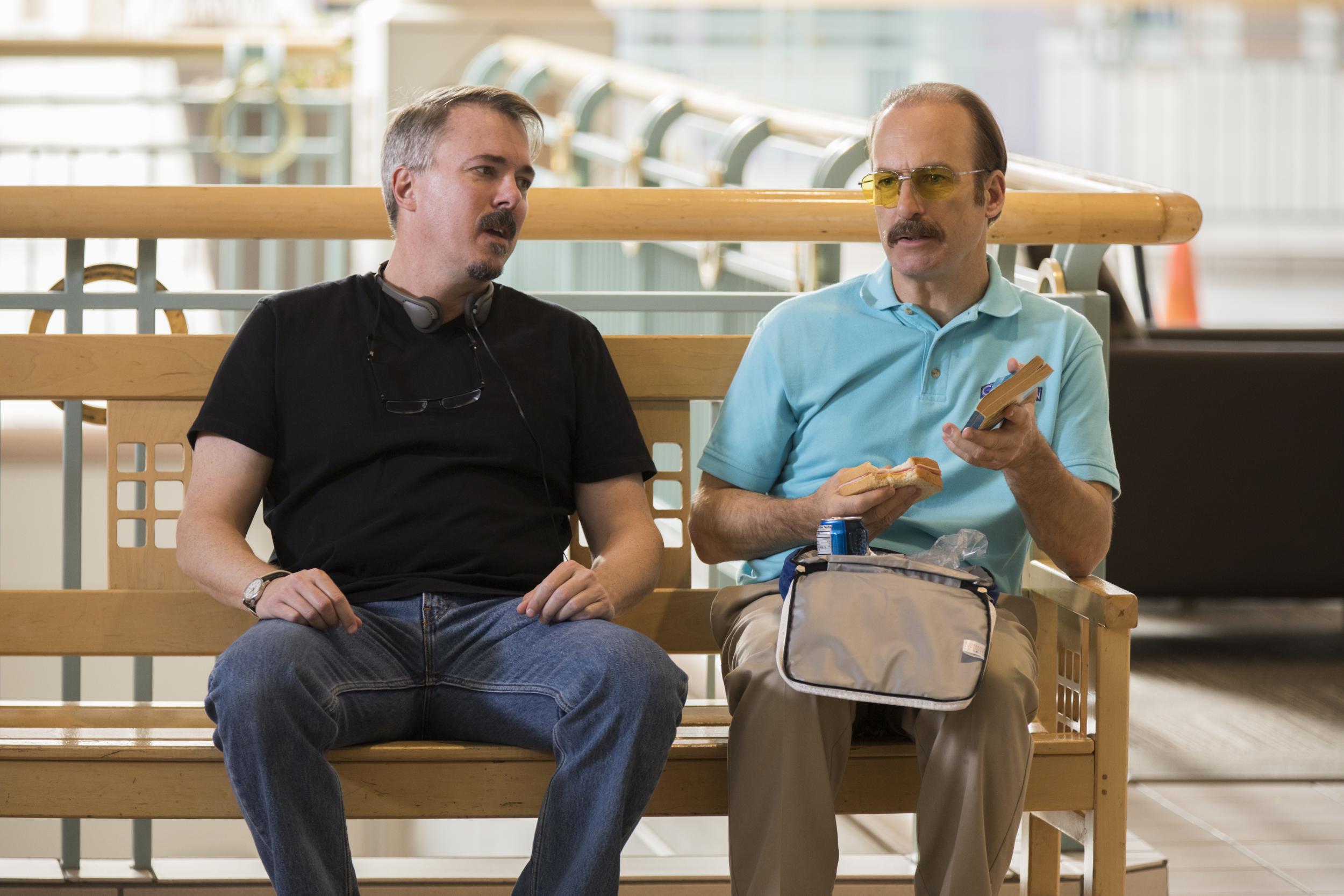
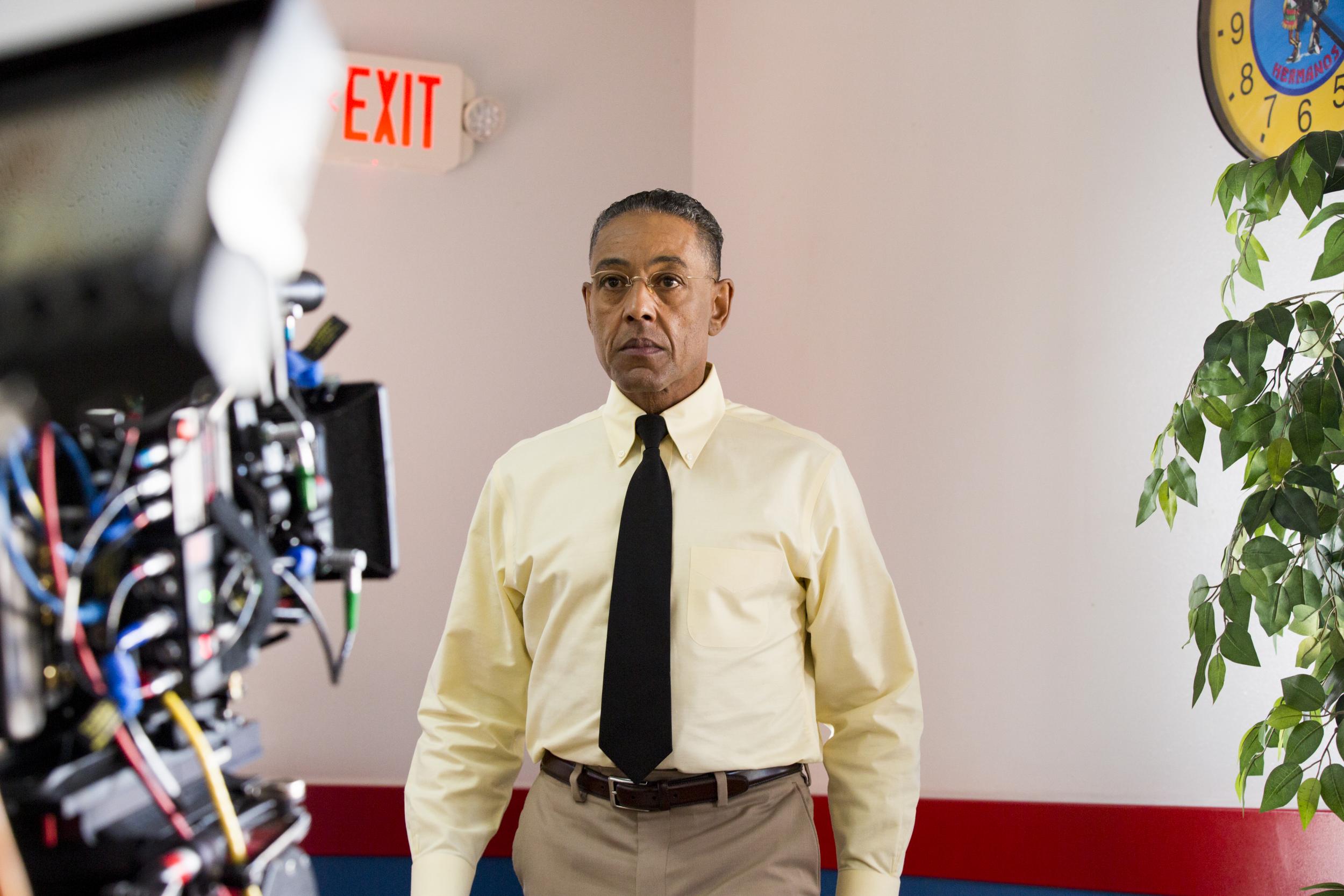
When this ostensible “Easter Egg” was spotted at a much later date, many fans assumed the whole Madrigal/Lydia Rodarte-Quayle storyline was fleshed out seasons before, but in fact “when we put that on there I had only the vaguest idea of a parent company that may or may not wind up being important to the series”, Gilligan explained.
“I didn’t know where it was going to go exactly but I wanted to include it, and it’s one of those things where 99 per cent of the people who watch it will never notice but for the 1 per cent that do my writers and I thought to ourselves: ‘OK, maybe we can give them a gift for having noticed this.’
“We pulled off a pretty good magic trick – most days we were kind of scratching our butts wondering what we were doing next.”
Fast forward five years and the screenwriting technique is still serving his team well, being writ large in a sense with prequel show Better Call Saul which, while establishing new storylines in its own right, deals a lot with how the events of Breaking Bad came to pass.
Speaking to me ahead of the fourth season alongside his co-showrunner and Saul Goodman character creator Peter Gould, Gilligan reflects: “I think the thing I was most proud of on Breaking Bad is that everyone thought we had this master plan for every little moment, every little detail.
“We pulled off a pretty good magic trick – most days we were kind of scratching our butts wondering what we were doing next.”
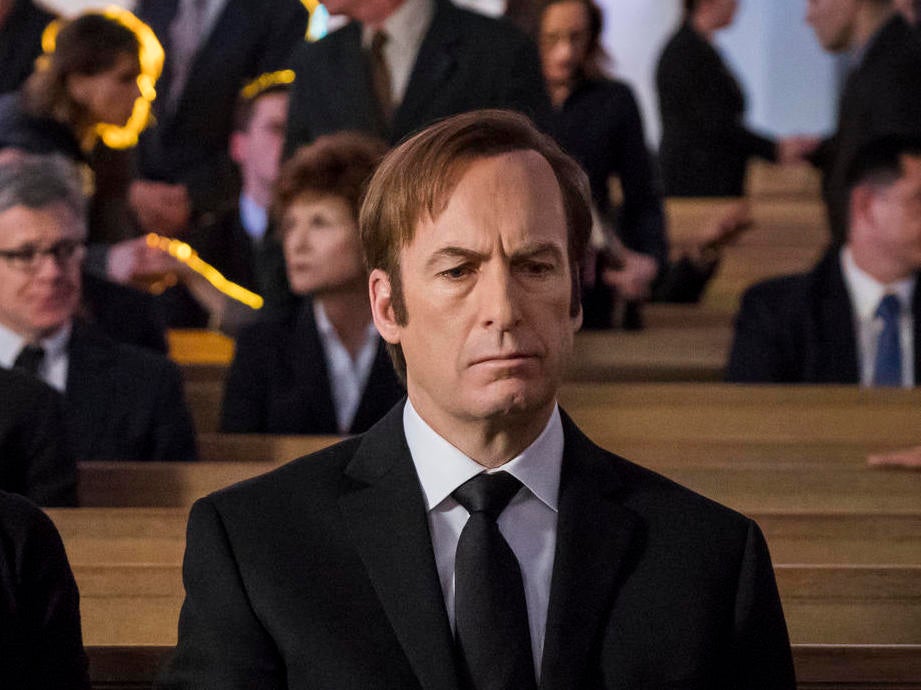
Gilligan sounds a little self-deprecating about it, but the method is “nothing new” he points out, “just good old, plain organic storytelling”.
Indeed this process of mining smaller, perhaps unexplained moments from a show universe’s past takes great skill and diligence.
“We were very self-disciplined in terms of like ‘that doesn’t jibe with what somebody said this in passing 14 episodes back so we’ve got to figure another way to approach this’, or ‘hey, Walt Whitman and Walter White have the same initials, what can we do with that?’ And I think Peter [Gould] and the writers are approaching that in the same way with Better Call Saul.”
Gould seems to have honed the technique working with Vince, and sees it as a way of advancing a story without, perhaps lazily, resorting to the interpolation of entirely new characters.
“I gotta say, this is something I’ve learned – maybe it’s been around for a while – but it’s something I’ve learned from working with Vince: we go back to go forward.
“Usually the clues of where to go next are already laid out in the show if we look at it carefully enough, and that’s why we tend to be parsimonious about bringing new characters or new elements into the show. Because it just feels like most of the time the answers are already right in front of us, it’s just a matter of looking more carefully.”
Better Call Saul season 4 arrives on AMC in the US on 6 August and worldwide through Netflix on 7 August.
Full conversation with Gilligan and Gould follows:
Vince, I think we spoke back in Albuquerque when you were shooting season five of Breaking Bad and Peter I believe we spoke ahead of season one of Better Call Saul. Sometimes it’s hard to get hold of people with for these big shows but you guys have always been really helpful and ready and willing to talk about your shows, so thanks for that.
Vince Gilligan: No problem!
Peter Gould: Thank you for writing about it, we really appreciate the interest.
I always think we Brits kind of butcher the name of the show. Because “Better Corrrrl Sorrrrl” doesn’t really fall out of the mouth as easily does it?
VG: (Laughs) I think it sounds classy! The Brits make everything sound classier. And then the Americans make it sound like absolute –
PG: A lot of people here call it Better Call "Sal", so there you go.
Amazing. So first and foremost with the new season, how come the delay on season 4?
PG: I’m not proud of it, I don’t think either one of us is proud of it. It seems like we get slower and slower as we go on. It takes like, and I’m sorry to say – everybody we work with would like it to go differently – but it takes us about 14 months to do ten episodes of Better Call Saul. Right now we’ve got a premiere in a week and a half. We’re frantically cutting, Vince just finished cutting the epic episode 9 that he directed. I’ve been cutting episode 10. Where the time goes, I can’t really say. In fact I can, it’s because we take a little bit more time in the writers’ room before we start shooting, and we take more time in post [production]. Which is just the way we’ve operated – it’s the way Vince operated on Breaking Bad and it seems to work for us.
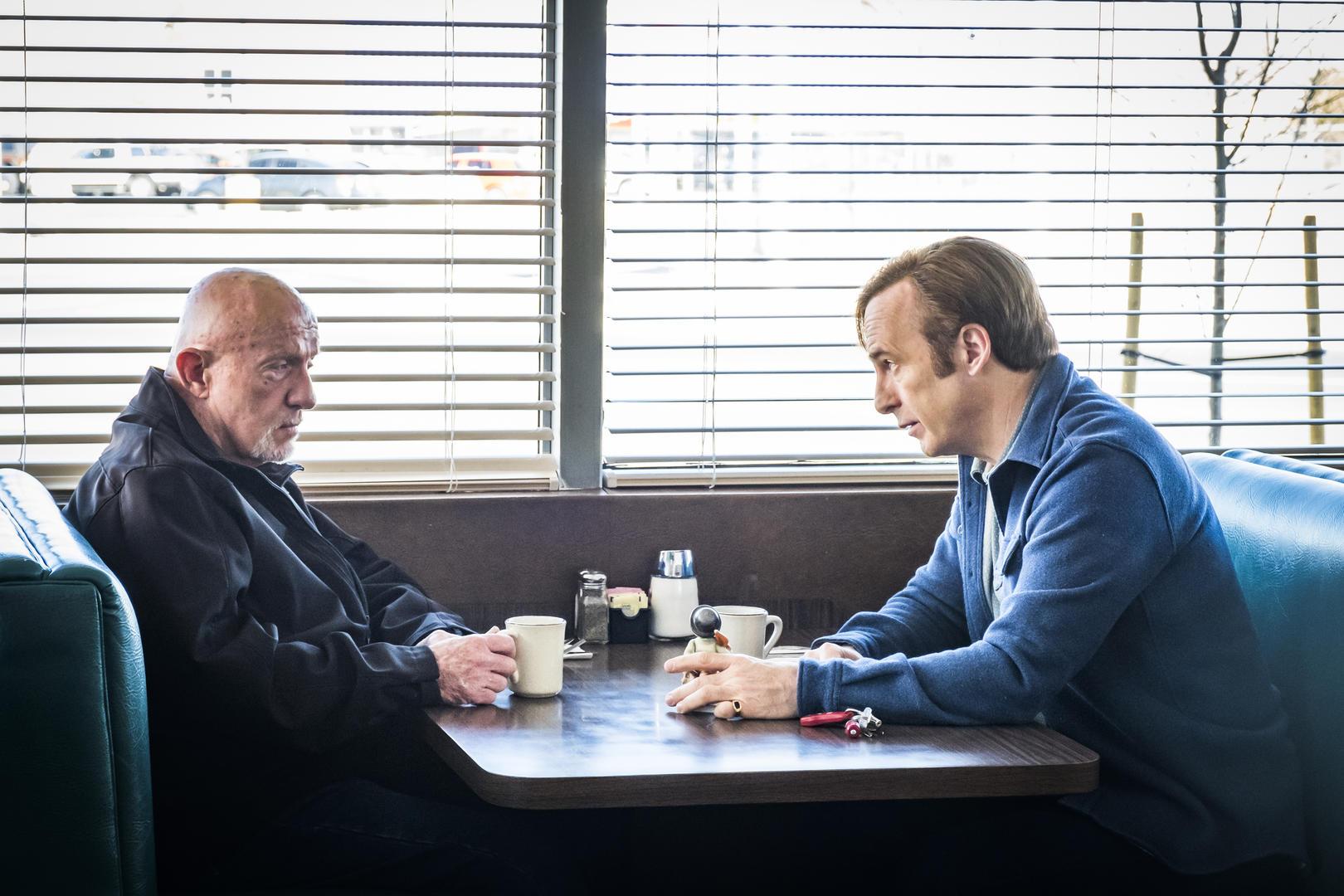
VG: Just to reinforce that point – Sony and AMC have been wonderful to us and given us the time we need. Time is the most important asset in the world, in life. And with storytelling you’ve got to have time to check it through. But what Peter just mentioned about the post [production] is an important point to make. Great American television has been done since time immemorial where you start shooting and then you start editing simultaneously. And like Peter said back on Breaking Bad, I’m very much a control freak. As Peter is as well, and I mean that in the best possible way on Better Call Saul, and you can’t split your attention like that. I’ve found that you can’t be working all day in the writers’ room, and then be on the set, and then be in the editing room all night. It’s just gonna reach a point of diminishing returns very quickly. So the wonderful thing that Sony and AMC allowed us to do, starting on Breaking Bad, was to wait until shooting was done, and then and only then start doing producer’s cuts on them. In the meantime the directors do their directors’ cuts but we turn our attention to post-production and editing only when everything else is done. And that adds hugely to the schedule but I think it’s working. I think. I’m hitting a fine wine analogy – it takes time. Now that I’m on Better Call Saul, I’m not an active participant so I can brag about it more than ever! But the time that Peter and the writers take pays great dividends and results in a much better TV show.
I feel bad now, I didn’t mean to say you guys were being slow!
VG: No, no [laughs].
It’s incredible how fast how you guys turn things around anyway. But I was wondering for this season whether it was a little bit longer because there was more story to thrash out. But moving on – my day job is mostly reviewing TV and I review a lot of it. The thing that always strikes me when a new season of Better Call Saul rolls around and I sit down to watch it is the pace of it. The pace is so much slower, it kind of takes it time, it doesn’t rush to get through plot points, and it often feels like if there’s a way you can do a scene using fewer words, or without words at all, then you do that, you just do it visually. Is that something that you’re always conscious of?
PG: Oh boy that is music to our ears. That it gets noticed. You know, especially as writers we tend to think about words and dialogue, and people who write about television tend to think about words and dialogue. But we’re working in a medium which is also a visual medium. And we love it when we can make a point visually without dialogue. It’s so much fun. And I think people talk about the change in television, I think that’s one of the big changes, I think that we’re allowed to do that. I think that audiences now pay close attention. The truism used to be, at least in American television, was that half the people will be off making a sandwich. So if you have a story point you better make it once or twice or three times. Now, you tell me why, but it seems like people are paying very close attention. In fact our audiences are so smart that they’ve outsmarted us more than once [Vince Gilligan laughs].
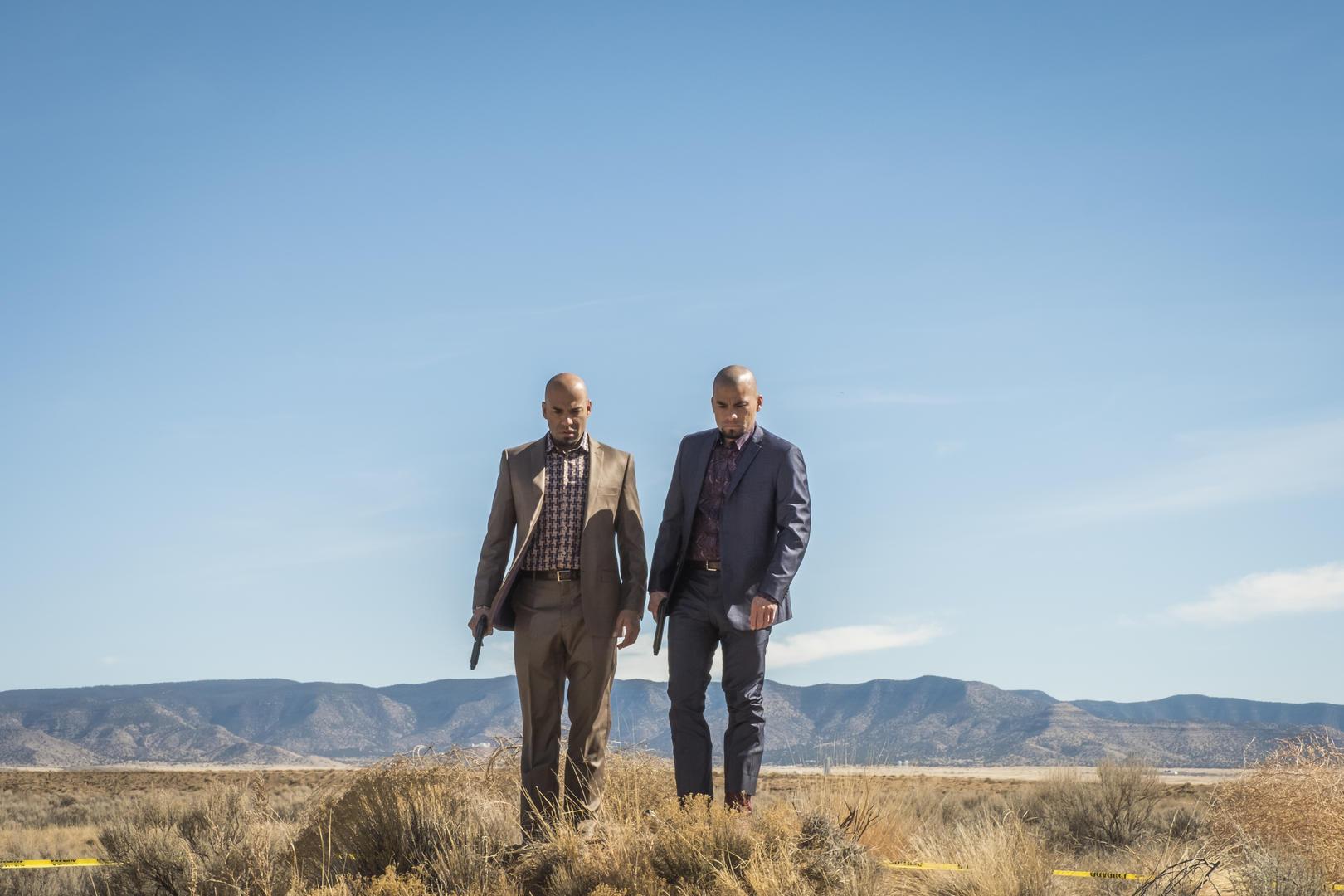
Yeah! I would argue that, in the same way that podcasts have become so popular, it’s a similar sort of experience that people like to sit down and watch something that goes at its own pace and really concentrate on it. And maybe it is a reaction to how fast life is outside of television at the moment but, difficult to say.
VG: I like that theory.
I remember Vince when we were talking before about Breaking Bad a few years ago that a lot of the moments that seem like you have really cleverly crafted from the beginning was actually the case where you sit down to do a new season and you’d look back at what was already in place, and you’d think, ‘OK, what can we mine from the past?’ What other elements have we not fully explored? Whether it’s Madrigal at the bottom of an advert or whatever… Was it a similar working practice for you guys on Better Call Saul? Do you sit down and think about Breaking Bad and think what the elements are that you didn’t really have time to go into there, but can have more of here?
VG: Yeah I think it’s a process that wasn’t broken, so we’re not fixing it. It’s a situation where on Better Call Saul, first and foremost in the writers’ room, Peter and the writers are addressing the show moment by moment and character by character. And looking at it from the character’s point of view. What does this character want? What does this character need? What obstacles? That, you know. And it’s not like Breaking Bad invented that either, it’s just plain good old organic storytelling. I think the thing I was proudest of on Breaking Bad is that everyone thought, until they saw some interviews, that we had this master plan for every little moment, every little detail in Breaking Bad. And in fact you’re exactly right. We pulled off a pretty good magic trick. Most days we were kind of scratching our butts wondering what we were doing next. We never hesitated to look and be very self-disciplined to ensure all the ties were knotted and all the t’s were crossed, so to speak. We were very self-disciplined and I’m very proud of that too. Very self-disciplined in terms of, ‘That doesn’t jibe with what somebody said this in passing fourteen episodes back so we’ve got to figure another way to approach this,’ or ‘Hey Walt Whitman and Walter White they had the same initials, what can we do with that?’ And I think Peter and the writers are approaching that in the same way in Better Call Saul.
PG: I got to say. This is something I’ve learned – maybe it’s been around for a while – but it’s something I’ve learned from working with Vince. It’s like you said, Chris, we go back to go forward. Usually the clues of where to go next are already laid in the show if we look at it carefully enough, and that’s why we tend to be very parsimonious about bringing new characters or new elements into the show, because it just feels like most of the time the answers are already right in front of us it’s just a matter of looking more carefully.
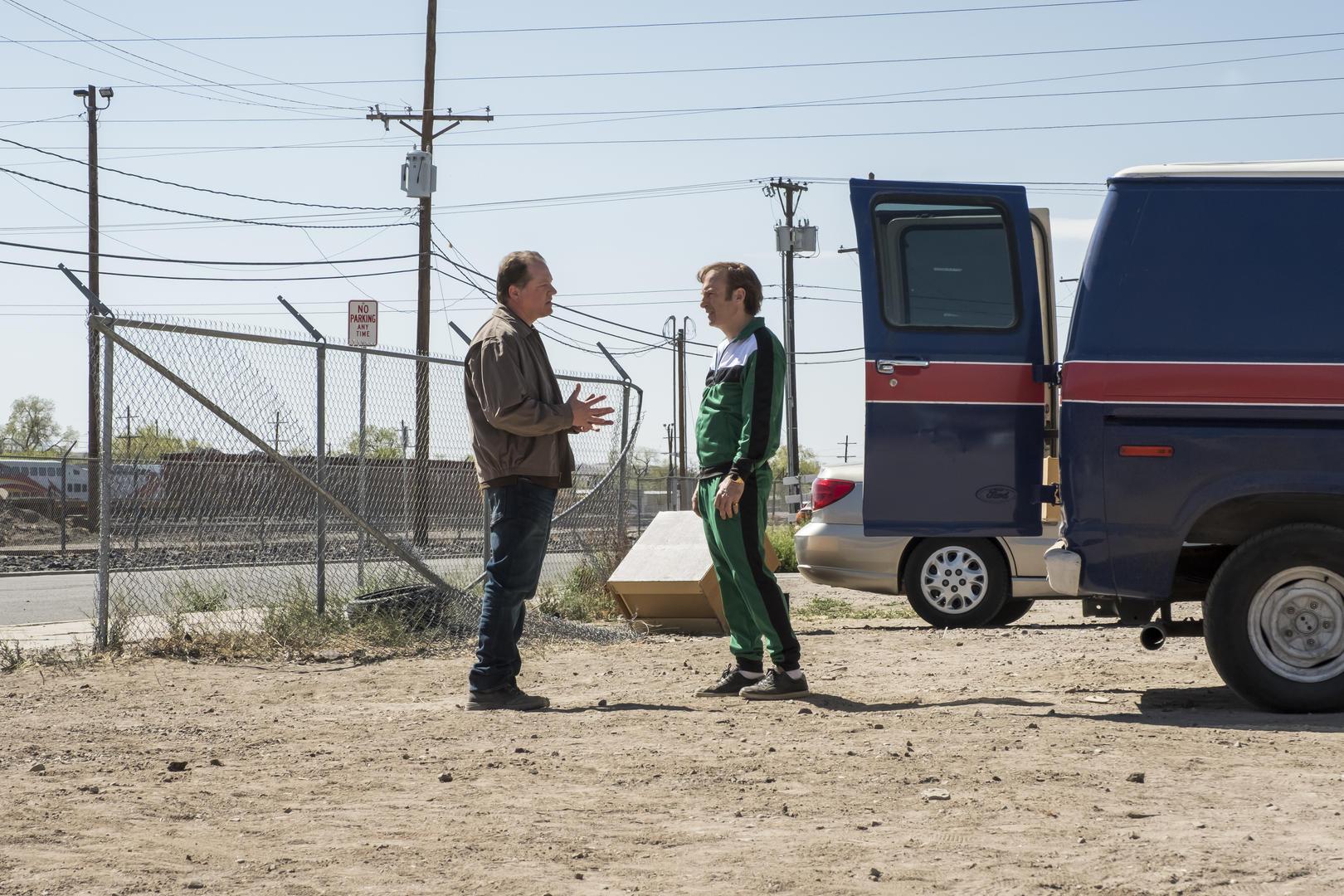
Right, yeah you don’t want to go off expanding the universe when you’ve already got plenty to draw on.
VG: Yeah, exactly, that’s a good way to put it. What do you need 60 more characters for, when the material you’re looking at is so fascinating? Yeah, exactly.
Now obviously you guys must be really conscious that everyone takes such a detailed viewing of the show – if there are little references that can be made, little Easter eggs and things like that... I know the fans are so vigilant, but do you think there are things that are in there that people haven’t spotted?
PG: They’ve spotted things that we haven’t put in! More than missing things that we have. There have been things pointed out to me about, for instance graffiti, graffiti tags that are the same on the two shows that I was completely unaware of. Boy. I don’t know about you Vince, but I feel like people’s focus is pretty much picked up, even on things that I thought we were burying pretty deep, just barely touching on, the number of people out there who are watching. It is intimidating, by the way, the number of people that are watching the show very carefully is extraordinary. And, you know, meeting these folks, they’re very smart, very articulate, better read them me! So I think we have to – our struggle is to try to stay humble and just do the best job that we can. The truth is that there’s a lot going on this show, and hopefully, hopefully it all lined up. We try like hell to keep the world of the show consistent.
VG: I can’t think of something, I’m racking my brain, I can’t think of something that we put in that the audience didn’t pick up on. I guess by season 5, the only one I can think of – I’m not talking about Better Call Saul now, this is Breaking Bad – in season 2 of Breaking Bad we put in that sort of cypher or puzzle or what have you related to the titles of the episode that gave away the mystery about why there was a burned teddy bear in Walter White’s pool: 737 Down Over ABQ. I don’t think anyone picked that up before we said, ‘Hey, there’s a message.’ But that’s just because no one looked for it. But once we did that, man that opened the floodgates! We tried to do the same thing on season two of Better Call Saul but we weren’t nearly clever enough. Damn, the audience has always picked it up since.
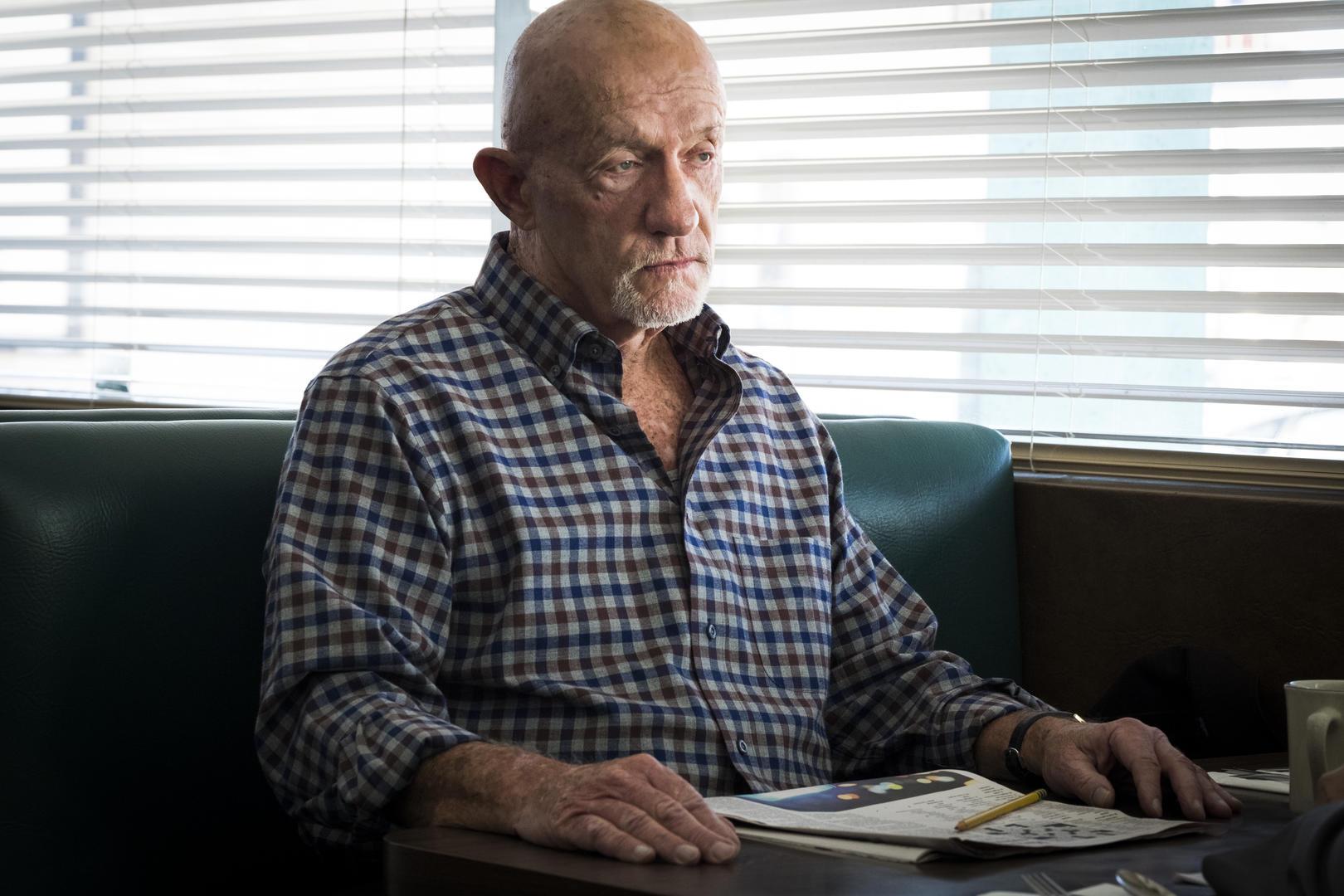
PG: The first letter of each title spelled out ‘Fring’s Back’ which just...
I remember that, yeah...
VG: And the most embarrassing thing about this was that we hadn’t even spoken to Giancarlo [Esposito, the Gus Fring actor] about it at that point. How stupid is that?
That’s a great way to pressure someone to come back to a show, just put in an acrostic and hope for the best!
PG: There you go.
So obviously you guys must have had an idea of where this story is going as well, obviously we know where it’s going and where it ends. How many seasons do you think it’s gonna take to get there? I know that previously you say you didn’t think it would go on longer than Breaking Bad...
PG: I think I would stick with that. It’s hard to know right now. We’re also dependent on folks watching the show and supporting it. Hopefully people stay interested enough that we can finish the story that we started. But I’m going to stick with what we said before. In an ideal world it would make a beautiful blu-ray or DVD set or whatever futuristic media may exist eventually to have the shows kind of bookend and be roughly the same number of episodes. But having said that, the big thing for us, is not to outstay our welcome. I would stick with it. We are talking about roughly the same number of episodes as Breaking Bad. Though I have to tell you if, at the beginning of this, you had told me we were going to do this many episodes about Walter White’s comedy sidekick lawyer I would have said you were crazy! The show has turned into a very different animal from frankly what I ever would have pictured when we got started.
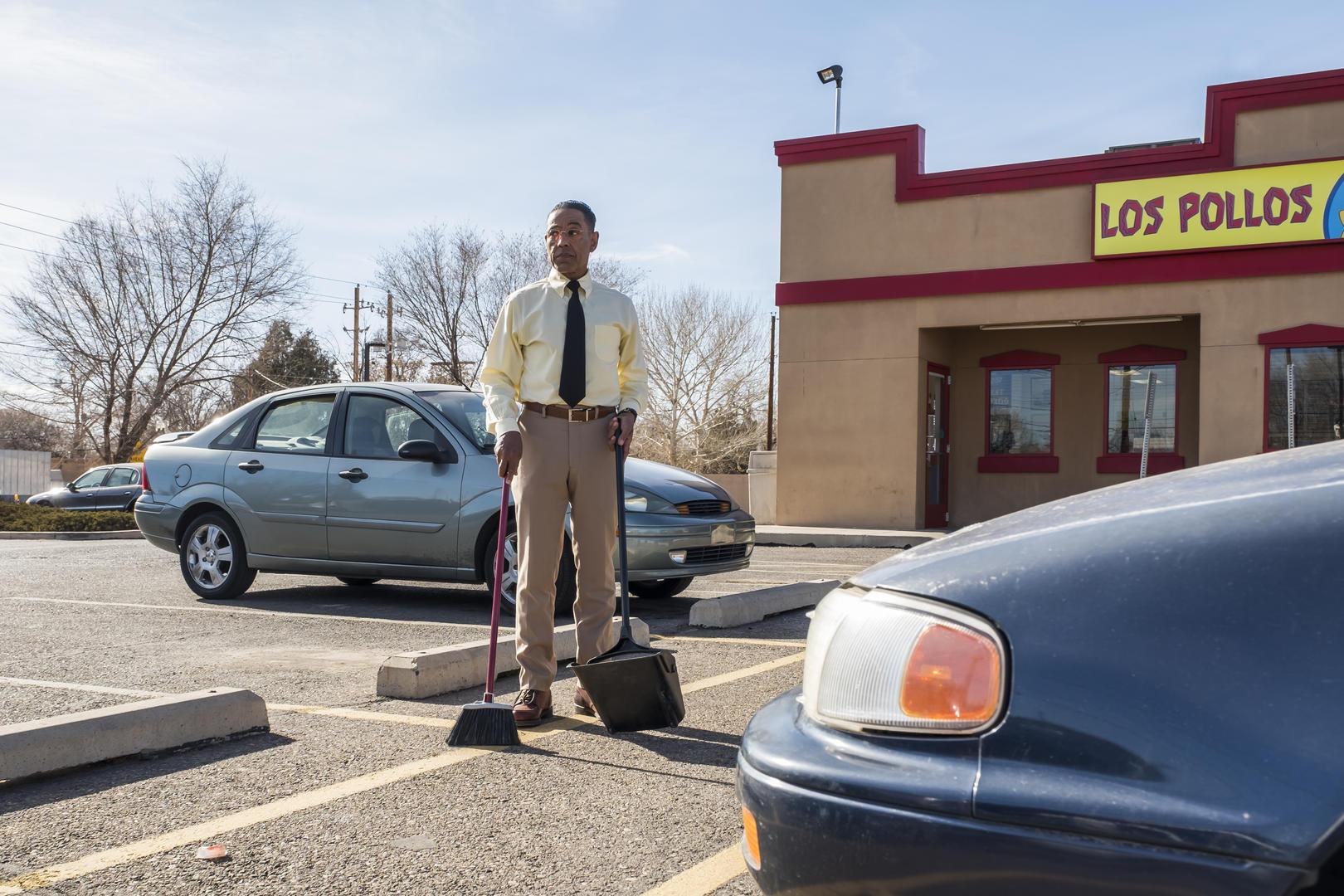
And just finally, the Breaking Bad universe has been you guys’ life for 10 years now. I’m interested to know what you guys are looking at for after the show, you must be thinking about it, what you still want to do, whether it’s a genre thing or...?
VG: I wanna take over from Michael Flatley on Riverdance [laughs].
Is he even still doing it? That job might be open...
VG: Absolutely no dancing ability whatsoever, but that’s not going to stop me [laughs].
Peter are you thinking ice capades? Figure skating?
VG: I approach stories that I want to tell, I don’t want to think in terms of genre. Although I tell you I’d be lying if I didn’t say that before I retire or I die, I want to do at least one flat out western. I think Breaking Bad, in and of itself is very much a western, and we kind of act into that, I didn’t really realise that until one day someone told me that’s what we were doing. But I want to do a full-on western because it’s one of my favourite genres. But other than that I don’t think in terms of genre. I love science fiction, I love crime genre, I’m not a huge fan of horror but that could be a fun thing to do at some point. I don’t, me personally, I approach it in terms of is there a character that suddenly comes into my consciousness who is very interesting to me. Is there a character that I really find myself awake in the middle of the night thinking about? And then, what’s the story surrounding the character? It always comes from the inside out not the outside in in terms of characters versus the story.
Sure. Well I hope you do get round to a western, because like you say it would seem like such a natural fit for the kind of storytelling you like, so I look forward to that. Thanks for your time guys and good luck with the new season and getting back into the writers’ room.
PG: Thanks a lot Chris.
VG: Have a good one.
Join our commenting forum
Join thought-provoking conversations, follow other Independent readers and see their replies
Comments